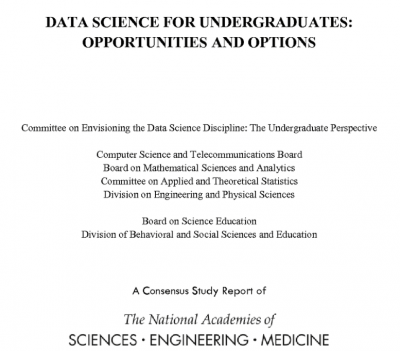Data Science for Undergraduates: Opportunities and Options

Data science is emerging as a field that is revolutionizing science and industries alike. Work across nearly all domains is becoming more data driven, affecting both the jobs that are available and the skills that are required. As more data and ways of analyzing them become available, more aspects of the economy, society, and daily life will become dependent on data. It is imperative that educators, administrators, and students begin today to consider how to best prepare for and keep pace with this data-driven era of tomorrow. Undergraduate teaching, in particular, offers a critical link in offering more data science exposure to students and expanding the supply of data science talent.
National Academies of Sciences, Engineering, and Medicine (2018). Data Science for Undergraduates: Opportunities and Options. Washington, DC: The National Academies Press. https://doi.org/10.17226/25104
Report Highlights - https://www.nap.edu/resource/25104/RH-dataundergrad.pdf